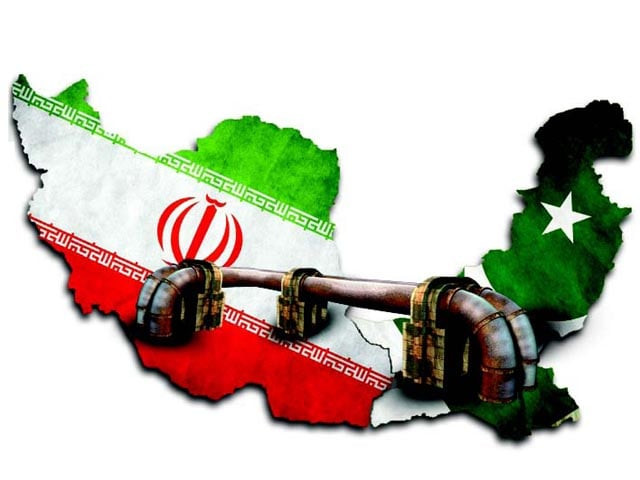Pipe dreams: Sanctions determine Pakistan’s response to Iran’s offer
Tehran agrees to review all of its barriers to trade for Pakistani exports.

After two days of negotiations between the two countries, Pakistan has turned down a request by Iran to offer a transit facility to Iranian exports to India and even expressed reservations at allowing Tehran to finance the Pakistan portion of the gas pipeline between the two neighbours, owing to international sanctions against Iran’s energy sector.
Officials familiar with the closed door negotiations of the 18th session of the Pakistan-Iran Joint Economic Commission (JEC) said that Pakistan turned down the Iranian request for transit to India based on a clause in the International Road Transportation of Passenger and Goods agreement, signed between the two countries in 2008.
Under the treaty, a transit facility cannot be granted unless both countries have an agreement with the third country in question. Pakistan does not yet have a transit agreement with India, they said.
Pakistan has also been reluctant to accept Iran’s offer to finance Pakistan’s portion of the much-needed gas pipeline between the two countries, fearing the consequences of international sanctions that might be triggered for cooperating with Iran.
Islamabad is instead seeking financing from Moscow and Beijing for the Pakistani portion which is slated to cost $1.5 billion, a figure that could go higher once a ‘bankable’ feasibility study – currently being conducted – is completed.
Finance ministry officials said that during the meetings with Iranian officials, they were informed that the remaining 250 kilometres of the Iranian section of the pipeline would be completed in another 18 months, a timeframe that conflicts with Iranian Foreign Minister Ali Akbar Salehi’s public statement at the JEC meeting stating that the Iranian side would be completed within seven months.
Salehi also suggested that the pipeline could be extended to other countries, an implicit indication that the project may be extended to include the western portions of China.
The United States has, in the past, expressed opposition to the project but Finance Minister Abdul Hafeez Shaikh said that Pakistan remains committed to the project “nonetheless.”
Three MoUs signed
At the conclusion of the JEC meeting, the two countries signed three memoranda of understanding on economic and technical cooperation, on the jointly owned Pak-Iran Investment Company and cooperation between Pakistan Television Corporation and Islamic Republic of Iran Broadcasting. Iran and Pakistan also agreed in principle to sign an MoU on cooperation against money laundering.
The two countries also constituted joint working groups to facilitate cooperation in the energy sector, particularly on Iran’s offer to sell 1,100 megawatts of electricity to energy-starved Pakistan.
Trade barriers
Finance ministry officials were particularly proud of having secured an agreement by Tehran to review its tariff structure and non-tariff barriers on exports to Iran. The volume of trade between Pakistan and Iran in fiscal year 2011 was valued at $1.4 billion, of which roughly $1.2 billion were Iranian exports to Pakistan.
Islamabad feels that Tehran’s tariff structure, as well as other barriers to trade, are largely to blame for the tremendous imbalance in the trade between the two countries. Pakistan officials hope to expand the volume to $4.5 billion within the next three years.
Iran has a population of about 75 million people and the size of its economy is estimated at $357 billion, providing a significant opportunity for Pakistani exporters.
Preparing for a ‘post-American’ future
The Iranian foreign minister said that it was important for Islamabad and Tehran to work together during a period of ‘transition’ – a hint at the withdrawal of US troops from Afghanistan, scheduled to take place by 2014.
Salehi also said that Prime Minister Yousaf Raza Gilani’s coming trip to Iran on Monday would help ties between the two nations.
Published in The Express Tribune, September 9th, 2011.


















COMMENTS
Comments are moderated and generally will be posted if they are on-topic and not abusive.
For more information, please see our Comments FAQ